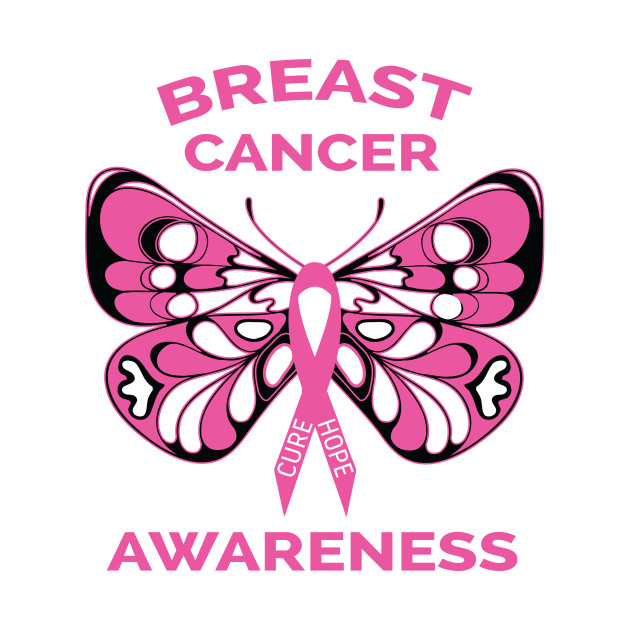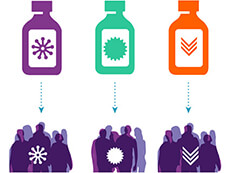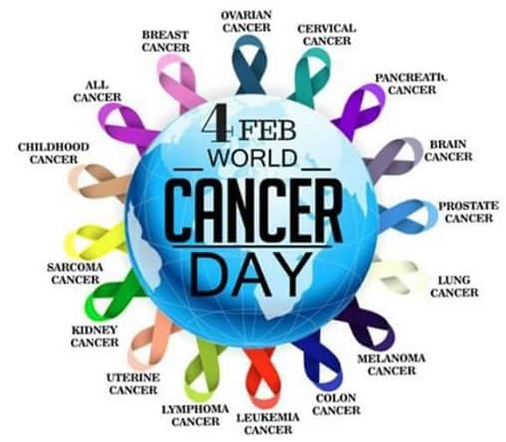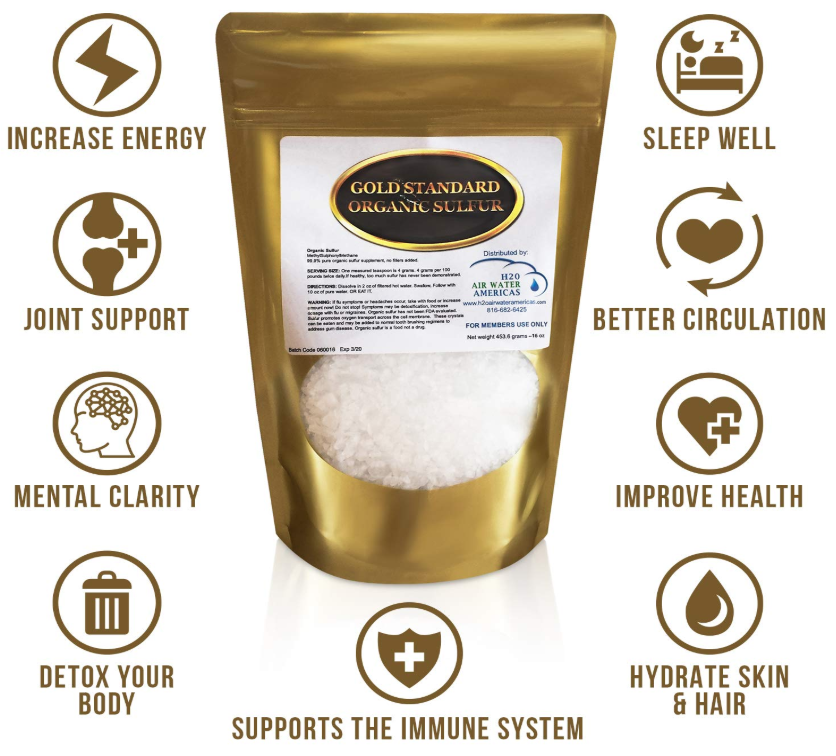 Featured Items Featured Items
MSM (MethylSulfonylMethane) is an abbreviation of methylsulfonylmethane, an organic form of sulfur. The chemical formula of MSM is CH3SO2CH3. It is the form in which sulfur is biologically active and appears in nature in all living organisms.
$39.95
Backorder
Sulfur is called nature's "beauty mineral" because it keeps skin smooth and youthful and hair glossy. Sulfur is necessary for the production of collagen and keratin, proteins necessary for the health and maintenance of skin, nails and hair'
$14.95
Backorder
|

|
 Topic You have Chosen: Topic You have Chosen:
Cancer Screening



Certain tests help find specific types of cancer before signs or symptoms appear. This is called screening. The main goals of cancer screening are to:
-
Reduce the number of people who die from the disease, or prevent deaths from cancer altogether
-
Reduce the number of people who develop the disease
Types of screening tests
Each type of cancer has its own screening tests. Some types of cancer currently do not have an effective screening method. Developing new cancer screening tests is an area of active research.
Breast cancer
-
Mammography. Mammography is a type of x-ray specifically designed to view the breast. The images produced by mammography can show tumors or irregularities in the breast. These images are called mammograms.
-
Clinical breast examination. A medical professional looks and feels for any changes in the breast’s size or shape. The examiner also looks for changes in the skin of the breasts and nipples.
-
Breast self-examination. During this exam, a woman looks and feels for changes in her own breasts. If she notices any changes, she should see a doctor.
-
Magnetic resonance imaging (MRI). An MRI is not regularly used to screen for breast cancer. But it may be helpful for women with a higher risk of breast cancer, those with dense breasts, or when a lump is found during a breast exam.
Cervical cancer
-
Human papillomavirus (HPV) testing. Cells are scraped from the outside of a woman’s cervix. These cells are tested for specific strains of HPV. Some strains of HPV are more strongly linked to an increased risk of cervical cancer. This test may be done alone or combined with a Pap test (see below). An HPV test may also be done on a sample of cells from a woman’s vagina that she can collect herself.
-
Pap test. This test also uses cells from the outside of a woman's cervix. A pathologist then identifies any precancerous or cancerous cells. A Pap test may be combined with HPV testing.
Colorectal cancer
-
Colonoscopy. During this procedure, the doctor inserts a flexible, lighted tube called a colonoscope into the rectum. The doctor is able to check the entire colon for polyps or cancer.
-
Sigmoidoscopy. The doctor uses a flexible, lighted tube called a sigmoidoscope to check the lower colon for polyps and cancer. The doctor cannot check the upper part of the colon with this test.
-
Fecal occult blood test (FOBT). This test finds blood in the feces, or stool, which can be a sign of polyps or cancer. There are two types FOBT: guaiac and immunochemical.
-
Double contrast barium enema. This is an x-ray of the colon and rectum. The barium enema helps the outline of the colon and rectum stand out on the x-rays. Doctors use this test to screen people who cannot have a colonoscopy.
-
Stool DNA tests. This test analyzes DNA from a person’s stool sample to look for cancer. It uses DNA changes found in polyps and cancers to help a doctor decide if a colonoscopy is needed.
Head and neck cancers
- General health screening exam. The doctor looks in the nose, mouth, and throat for abnormalities and feels for lumps in the neck. Regular dental check-ups are also important to screen for head and neck cancers.
Lung cancer
- Low-dose helical or spiral computed tomography (CT or CAT) scan. A CT scan takes x-rays of the inside of the body from different angles. A computer then combines these images into a detailed, 3-dimensional image that shows any abnormalities or tumors.
Prostate cancer
-
Digital rectal examination (DRE). A DRE is a test in which the doctor inserts a gloved lubricated finger into a man’s rectum and feels the surface of the prostate for any irregularities.
-
Prostate-specific antigen (PSA) test. This blood test measures the level of a substance called PSA. PSA is usually found at higher-than-normal levels in men with prostate cancer. But a high PSA level may also be a sign of conditions that are not cancerous.
Skin cancer
-
Complete skin exam. A doctor checks the skin for signs of skin cancer.
-
Skin self-examination. People examine their entire body in a mirror for signs of skin cancer. It often helps to have another person check the scalp and back of the neck.
-
Dermoscopy. A doctor uses a handheld device to evaluate the size, shape, and pigmentation patterns of skin lesions. Dermoscopy is usually used for the early detection of melanoma.
Risks of screening
Screening tests can help doctors find a cancer at an earlier, more treatable stage. This may help improve survival. But cancer screening also has a number of risks. These risks include:
-
Overdiagnosis. Screening tests may find slow-growing cancers that would not have caused any harm during a person's lifetime. As a result, some people may receive potentially harmful, painful, stressful, and/or expensive treatments that they did not need.
-
False positives. Sometimes a screening test will suggest that a person has cancer when they do not.
-
Increased testing. Doctors may run additional tests that a person may not need because of overdiagnosis and false positives. These tests can be physically invasive, costly, and can cause unnecessary stress and worry.
-
False reassurance. Sometimes a screening test will suggest a person does not have cancer when they actually do. As a result, a person may not get the treatment he or she needs.
Screening recommendations
A number of organizations provide guidelines on cancer screening tests. Sometimes these guidelines suggest different things. Recommendations vary on:
-
Which type of cancer people should be screened for
-
Which tests should be used to screen for a particular type of cancer
-
What age screening should begin and end
-
How often screening tests should be done
-
What happens if the screening shows positive results?
Talk with your doctor about your personal risk of developing cancer. Together you can decide on an appropriate screening schedule based on your age and personal and family medical history.
CANCER COLORS

Cancer Awareness Dates
|
January
- Cervical Health Awareness Month
|
February
- National Cancer Prevention Month
- February 15, 2019 - International Childhood Cancer Day
|
|
March
1. National Colorectal Cancer Awareness Month
2. Myeloma Awareness Month
3. Kidney Cancer Awareness Month
4. Triple Negative Breast Cancer Day
5. March 4, 2019 – International HPV Awareness Day
|
April
1. Esophageal Cancer Awareness Month
2. National Cancer Control Month
3. Young Adult Cancer Awareness Week
4. April 7, 2019 – World Health Day
5. April 8−14, 2019 - National Minority Cancer Awareness Week
6. National Oral, Head, and Neck Cancer Awareness Month
7. April 7-13, 2019 - Oral, Head and Neck Cancer Awareness Week
8. Testicular Cancer Awareness Month
|
|
May
1. Bladder Cancer Awareness Month
2. Brain Tumor Awareness Month
3. National Melanoma/Skin Cancer Detection and Prevention Month
4. May 6, 2019 - Melanoma Monday
5. National Neurofibromatosis Month
6. Oncology Nursing Month
7. National Cancer Research Month
8. May 12-18, 2019 - Women’s Health Week
9. May 8, 2019 - World Ovarian Cancer Day
10. May 31, 2019 - World No-Tobacco Day
|
June
1. Cancer Immunotherapy Awareness Month
2. June 3, 2019 - National Cancer Survivors Day
3. June 16-22, 2019 - Men's Health Week
|
|
July
1. UV Safety Month
2. Sarcoma Awareness Month
3. July 13, 2019 – GIST Awareness Day
Gastro-intestinal-stromal-tumor
|
August
1. National Immunization Awareness Month
2. World Lung Cancer Day – August 1, 2019
|
|
September
1. Blood Cancer Awareness Month
2. Childhood Cancer Awareness Month
3. Gynecologic Cancer Awareness Month
4. National Ovarian Cancer Awareness Month
5. Pain Awareness Month
6. Prostate Cancer Awareness Month
7. Thyroid Cancer Awareness Month
8. National Hereditary Breast and Ovarian Cancer Week
9. September 24, 2019 - World Cancer Research Day
|
October
1. National Breast Cancer Awareness Month
2. Liver Cancer Awareness Month
3. October 12, 2019 - World Hospice and Palliative Care Day
4. October 13, 2019 - Metastatic Breast Cancer Awareness Day
5. October 18, 2019 - National Mammography Day
6. October 20-26, 2019 - National Health Quality Week
7. October 26-November 2, 2019 - International Brain Tumor Awareness Week
|
|
November
1. National Family Caregivers Month
2. National Hospice and Palliative Care Month
3. Lung Cancer Awareness Month
4. National Marrow Awareness Month
5. World Neuroendocrine Tumor Awareness Day (NET Cancer Day) – November 10, 2019
6. National Pancreatic Cancer Awareness Month
7. November 21, 2019 - World Pancreatic Cancer Day
8. National Stomach Cancer Awareness Month
9. Great American Smokeout – November 21, 2019
|
December
|
 Related Topics Related Topics
In its Report on Carcinogens, the National Toxicology Program of the US Department of Health and Human Services lists consumption of alcoholic beverages as a known human carcinogen.
Risk factors often influence the development of cancer, most do not directly cause cancer. Knowing your risk factors and talking about them with your doctor may help you make more informed lifestyle and health care choices.
The goal of screening is to detect disease at its earliest and most treatable stage. A screening program must meet a number of criteria, including reducing the number of deaths from the given disease.
Tests are used to screen for different types of cancer when a person does not have symptoms.There is no standard or routine screening test for liver cancer.Ultrasound.CT scan,Tumor markers
A carcinogen is any substance, radionuclide, or radiation that promotes carcinogenesis, the formation of cancer.
Screening for lung cancer is done with a test called a low-dose helical or spiral computed tomography (CT or CAT) scan. A CT scan takes pictures of the inside of the body with an x-ray machine.
Screening for Cervical Cancer at American Cancer Center, Nigeria
Risk Factors and Prevention of Prostate Cancer are Age,Race/ethnicity,Family history,Hereditary breast and ovarian cancer (HBOC) syndrome.
Colorectal cancer screening in American Cancer Center, Nigeria.
Colorectal Cancer: Screening
Preventing cancer by surgically removing your ovaries. This procedure, significantly reduces your odds of developing breast cancer and ovarian cancer if you're at high risk.
REMOVING POISONS AND PARASITES FROM YOUR BODY.
|

|
|















